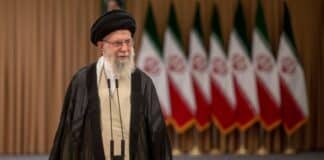Israeli Prime Minister Benjamin Netanyahu officially recognized the Armenian Genocide during an interview Tuesday on the Patrick Bet-David Podcast—marking a dramatic reversal of decades-long Israeli policy. The acknowledgment aligns Israel with the United States and numerous Western nations that have already recognized the mass killing of 1.5 million Armenians by the Ottoman Empire during World War I as genocide.
“The Armenians suffered a terrible genocide,” Netanyahu stated, confirming a position Israel had long avoided over diplomatic concerns.
For decades, Israel refrained from recognizing the genocide publicly due to its once-close relationship with Turkey, one of the few Muslim-majority nations to maintain strategic ties with the Jewish state. Ankara has consistently rejected the genocide designation, arguing the deaths occurred in the context of civil war and mass relocation during wartime, not through a coordinated effort to exterminate a people group.
Modern historians broadly agree that the systematic killing of Armenians from 1915 to 1916 was genocide—considered the first of the 20th century. Victims were starved, beaten, and murdered during forced marches to the Syrian desert. Countless others died in concentration camps under Ottoman control. The genocide targeted Armenians for both their ethnicity and Christian faith, interfering with the nationalist ambitions of the Young Turks to unify Turkic lands from the Caucasus to Central Asia.
Israel’s recognition comes at a time of growing hostility between Jerusalem and Ankara. Turkish President Recep Tayyip Erdogan has increasingly embraced radical Islamic factions like Hamas and has accused Israel of committing genocide in Gaza. These inflammatory statements have all but dissolved the once-warm relations between the two nations.
Netanyahu’s decision appears rooted not only in historical clarity but also in current geopolitical shifts. Turkey’s alignment with anti-Israel elements in the region has eroded its value as a partner, making the strategic cost of genocide recognition minimal. Meanwhile, standing with Christian victims of past atrocities underscores Israel’s alignment with Western democracies and moral clarity in the face of real genocide denial.
The move is likely to anger Ankara, but signals Israel’s growing willingness to assert moral clarity over diplomatic appeasement—especially when facing regimes that actively support terror or deny historical atrocities.





